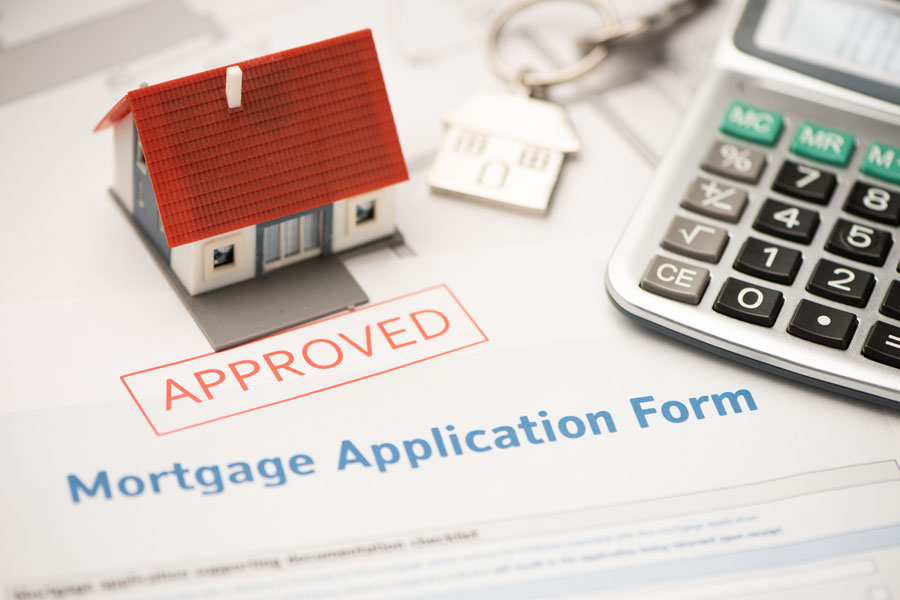While most mortgage web sites offer a glossary containing hundreds of real estate and lending related terms, we wanted to highlight the top terms that most borrowers will hear several times throughout the approval and home buying process.
Understanding the “Shop Talk” between the various industry professionals that you’ve assembled on your team will hopefully give you greater confidence when discussing important topics that may impact your transaction.
Amortization Schedule:
A schedule of payments showing the amount applied to the principal and interest through the payoff.
Annual Percentage Rate (APR):
The effective rate of interest that includes loan related fees. The APR helps determine the total cost of borrowing a loan and is used to compare loans that are advertised with different note rates.
Adjustable Rate Mortgage (ARM):
As opposed to a fixed-rate mortgage where the payment is set for the full term of the loan agreement, an ARM is tied to a specific financial index and may adjust after a set amount of time.
Buydown:
Where a borrower pays an up-front fee to lower the mortgage rate and monthly payment. Rate Buydowns can be used to help a borrower qualify for a loan, or as a means of negotiation where the seller would contribute to a lower rate in order to entice a buyer to purchase their property.
Combined Loan-to-Value (CLTV):
The total amount of mortgage obligations on a particular property compared to the fair market value.
Debt-to-Income Ratio (DTI):
A borrower’s minimum monthly liability payments divided by their gross monthly income.
Default:
Failure to fulfill an obligation to pay a mortgage.
Delinquency:
Late payments on a monthly liability. Creditors generally report payments to credit bureaus once the delinquency goes past 30 days.
Disclosure:
A big stack of documents that the lender, buyer and sellers sign during a real estate purchase or mortgage transaction. These disclosures may also notify all parties involved of their rights and obligations.
Discount Point:
The amount paid to decrease an interest rate.
Fico Score:
The three credit reporting agencies in the United States, Equifax, Experian, and TransUnion, collect data about consumers used to compile credit reports. The credit agencies use FICO software to generate FICO scores, which are sold to lenders.
Each individual actually has three credit scores at any given time for any given scoring model because the three credit agencies have their own databases, gather reports from different creditors, and receive information from creditors at different times.
Fixed Rate Mortgage:
A mortgage loan where the interest rate on the note remains the same through the term of the loan, as opposed to loans where the interest rate may adjust or “float”.
Good Faith Estimate (GFE):
A good faith estimate must be provided by a mortgage lender or broker in the United States to a customer, as required by the Real Estate Settlement Procedures Act (RESPA). The estimate must include an itemized list of fees and costs associated with your loan and must be provided within three business days of applying for a loan.
These mortgage fees, also called settlement costs or closing costs, cover every expense associated with a home loan, including inspections, title insurance, taxes and other charges.
A good faith estimate is a standard form which is intended to be used to compare different offers (or quotes) from different lenders or brokers.
Gross Income:
Total taxable income which is generally verified by a lender through tax returns and W2’s.
Home Equity Line of Credit (HELOC):
A line of credit secured by real estate.
HUD-1 Statement:
A comprehensive and itemized list of closing costs prepared by a closing agent that details all of the financial figures in a mortgage refinance or purchase transaction.
Joint Liability:
When more than one person applies for and secures a mortgage.
Jumbo Mortgage:
A mortgage with a loan amount above conventional conforming loan limits. This standard is set by the two government-sponsored enterprises Fannie Mae and Freddie Mac, and sets the limit on the maximum value of any individual mortgage they will purchase from a lender.
Fannie Mae (FNMA) and Freddie Mac (FHLMC) are large agencies that purchase the bulk of U.S. residential mortgages from banks and other lenders, allowing them to free up liquidity to lend more mortgages.
When FNMA and FHLMC limits don’t cover the full loan amount, the loan is referred to as a “jumbo mortgage”. The average interest rates on jumbo mortgages are typically higher than that of conforming mortgages.
Loan-to-Value (LTV):
The loan-to-value (LTV) ratio expresses the amount of a first mortgage lien as a percentage of the total appraised value of real property. For instance, if a borrower wants $130,000 to purchase a house worth $150,000, the LTV ratio is $130,000/$150,000 or 87% (LTV).
Loan to value is one of the key risk factors that lenders assess when qualifying borrowers for a mortgage. The risk of default is always at the forefront of lending decisions, and the likelihood of a lender absorbing a loss in the foreclosure process increases as the amount of equity decreases. Therefore, as the LTV ratio of a loan increases, the qualification guidelines for certain mortgage programs become much stricter. Lenders can require borrowers of high LTV loans to buy mortgage insurance to protect the lender from the buyer default, which increases the costs of the mortgage.
The valuation of a property is typically determined by an appraiser, but there is no greater measure of the actual real value of one property than an arms-length transaction between a willing buyer and a willing seller. Typically, banks will utilize the lesser of the appraised value and purchase price if the purchase is “recent.” What constitutes recent varies by institution but is generally between 1–2 years.
Loan Rate Lock:
Where the loan officer locks a specific rate with a lender for a set amount of time.
Liquid Assets:
Money in a bank or investment account that can be obtained quickly.
Loan Origination Fee:
A fee paid by a borrower to a lender for obtaining a mortgage loan.
Loan Servicer:
A mortgage servicer is the company that borrowers pay their mortgage loan payments to. Mortgage servicers either purchase or retain mortgage servicing rights that allow them to collect payments from borrowers in return for a servicing fee. The duty of a mortgage servicer varies, but typically includes the acceptance and recording of mortgage payments; calculating variable interest rates on adjustable rate loans; payment of taxes and insurance from borrower escrow accounts; negotiations of workouts and modifications of mortgage upon default; and conducting or supervising the foreclosure process when necessary.
Many borrowers confuse mortgage servicers with their lender. A mortgage servicer may be a borrower’s lender, but often the beneficial rights to the payment of principal and interest on mortgages are sold to investors such as Fannie Mae, Freddie Mac, Ginnie Mae, FHA, and private investors in mortgage securitization transactions.
Mortgage Insurance:
Mortgage insurance (also known as mortgage guaranty) is an insurance policy which compensates lenders or investors for losses due to the default of a mortgage loan. Mortgage insurance can be either public or private depending upon the insurer.
Mortgage Backed Security:
A mortgage-backed security (MBS) is an asset-backed security or debt obligation that represents a claim on the cash flows from mortgage loans, most commonly on residential property.
First, mortgage loans are purchased from banks, mortgage companies, and other originators. Then, these loans are assembled into pools. This is done by government agencies, government-sponsored enterprises, and private entities, which may offer features to mitigate the risk of default associated with these mortgages.
Mortgage-backed securities represent claims on the principal and payments on the loans in the pool, through a process known as Securitization. These securities are usually sold as bonds, but financial innovation has created a variety of securities that derive their ultimate value from mortgage pools.
Private Mortgage Insurance (PMI):
Private mortgage insurance (PMI) is insurance payable to a lender or trustee for a pool of securities that may be required when taking out a mortgage loan. It is insurance to offset losses in the case where a borrower is not able to repay the loan and the lender is not able to recover its costs after foreclosure and sale of the mortgaged property.
Real Estate Related Terms
Acceptance:
Generally used when a seller accepts the terms presented in a purchase contract offer.
Contingency:
A “Subject To” provision in a purchase contract or mortgage approval that requires more work or documents to be submitted prior to a final decision to be completed.
Due-Diligence:
The period of time described in a purchase contract for the buyer and seller to perform certain duties such as appraisal, loan approval and inspections.
Deed of Trust:
In real estate, a trust deed or deed of trust, is a document wherein specific financial interest in the title to real property is transferred to a trustee, which holds it as security for a loan (debt) between two other parties.
One is referred to as the trustor the other referred to as the beneficiary. In its simplest terms the trustor would be the receiver of money and the beneficiary would be the lender of money. The trust deed document most likely would be recorded (constructive notice) with the County Recorder where the property is located as evidence of and security for the debt.
When the loan is fully paid, the monetary claim on the title is transferred to the borrower by reconveyance to release the debt obligation. If the borrower defaults on the loan, the trustee has the right to foreclose on and transfer title to the lender or sell the property to pay the lender from the proceeds.
Earnest Money:
The deposit money deposited in escrow by a buyer in good faith to secure a purchase transaction.
Escrow:
A third party that holds money or property in trust until a transaction has been complete. There are several uses for the word “Escrow” in the real estate or mortgage process. Closing Escrow describes when a purchase transaction is complete. An Escrow or Impound account involves having your annual property and hazard insurance payments handled by a third party and taken out of monthly installments in a mortgage payment.
Equity:
The difference between a loan balance and a property’s fair market value.





